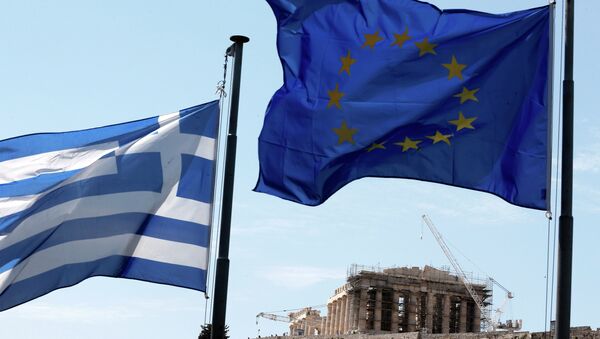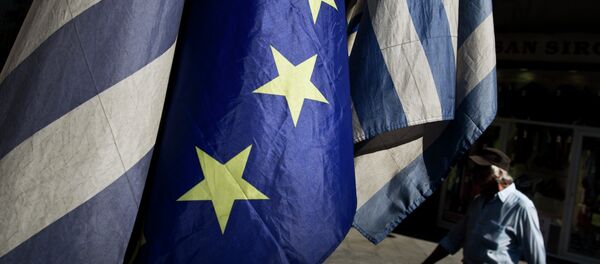The sheer folly of the latest bailout plan for Greece was summed up last week by Finland's Minister for Foreign Affairs Timo Soini who said that, in agreeing to open negotiations for a third rescue plan for Greece, his government faced "the choice between cholera and smallpox."
His view echoes that of other Eurozone countries whose parliaments have yet to ratify the latest bailout plan.
In addition to Finland — and especially among the poorer Eurozone countries — there is a reluctance to go along with the latest package.
It has been slammed by Paul Krugman, the Nobel Prize-winning economist, who said:
Better late than never, Mr. @NYTimeskrugman. #Greece http://t.co/Bk6aP5tgwB pic.twitter.com/7KzKR94kmk
— The Greek Analyst (@GreekAnalyst) 19 июля 2015
He told CNN the Greek Government had signed up to a new plan that is even worse than the one voted out in the previous week's referendum.
"It didn't even occur to me that they would be prepared to make a stand without having done any contingency planning… amazingly — they thought they could simply demand better terms without having any backup plan."
So, certainly this is a shock. But, you know, in some sense, it's hopeless in any case… it's not as if the terms that they were being offered before were feasible," said Krugman.
"I mean, the new terms are even worse, but the terms they were being offered before were still not going to work. So I, you know, I may have overestimated the competence of the Greek government."
Creditors Making Same Mistake as in 2010
Economists across the world say there is no hope of the latest bailout package surviving.
Greece debt crisis: The euro is a disaster even for the countries that do everything right http://t.co/iq68ZUDbdJ pic.twitter.com/7YClZkrktu
— Expressivus (@expressivus) 20 июля 2015
The IMF has said that Greece's public debt has become highly unsustainable. The financing needed through 2018 is now estimated at €85 billion and debt is expected to peak at close to 200 percent of GDP in the next two years, provided that there is an early agreement on a program.
Greece's debt can now only be made sustainable through debt relief measures that go far beyond what Europe has been willing to consider so far.
Even the IMF is in danger of breaking its own statutes, in that it is not allowed to lend to a country if it is capable of bearing its debts without outside help in the foreseeable future. Its target is a maximum of 120 percent of public debt — which Greece manifestly exceeds even now.
It is widely rumoured that the IMF document leaked last week, which said the Greek bailout was unsustainable, was a clear sign that the IMF did not believe that Europe cannot handle a major economic emergency.
Alexis Tsipras: bailout a ‘bad deal’ but the best Greece could get http://t.co/bRs7p5WvR4
— Andrew Robinson (@mxprofit) 20 июля 2015
Even the German newspaper Die Welt considers the latest bailout package to be nonsense. It said on Monday:
"Overall, the conditions are far harder than those it rejected in their referendum. For most Greeks, the cuts go too far."
"In 2013, the IMF said there were 'significant errors' in the [2010] the rescue plan for Greece. They had significantly underestimated how much the austerity measures exacerbated the downturn. Many economists fear that creditors are now repeating exactly the same mistake."



